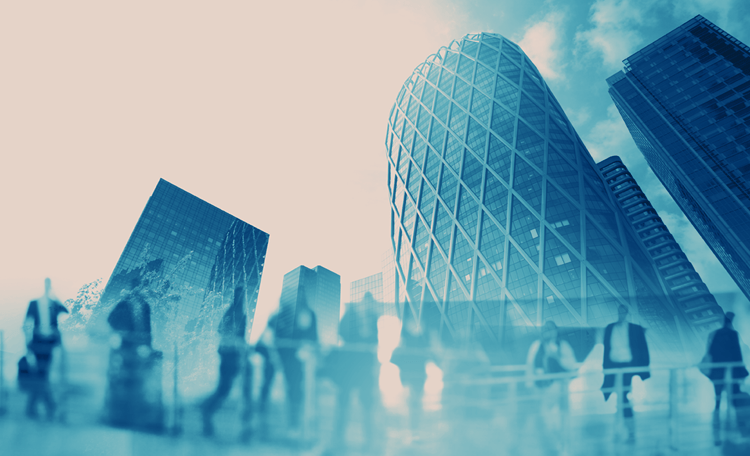
As countries around the world consider how best to reopen, it’s worth considering how South Korea has been able to flatten the curve without implementing extreme measures to restrict the freedom and movement of its citizens. While the effects of pandemic will likely reshape the workplace for the near term in South Korea—and perhaps even permanently—the county’s response to the pandemic may have positioned it to be among the first nations to experience an economic rebound.
A proactive response
Since South Korea reported its first case of the novel coronavirus on 20th January, the country has implemented several measures to bring the virus’s spread under control. On 22nd March the government launched an intensive social distancing campaign, shutting down schools, churches, gyms and bars. Companies turned to remote working to minimize risks of infection. Consequently, the nation was able to lower the number of new infections to single digits, with the mortality rate from COVID-19 hovering under 2%. As a testament to how successful the measures have been, voters stood in line for parliamentary elections on 15th April.

The rigorous effort seems to have paid off. On the 6th May the government announced the easing of social restrictions to a state they’re terming “everyday life quarantine”. Primary and secondary schools are due to gradually reopen, and public spaces such as museums and sports facilities will have become available in phases. This adds to the public spaces already reopened such as national parks, forests and arboretums, which are seen to carry lower risks of infections.
Counting the cost
Despite the local control over the outbreak, it is forecast that Korea could be one of the hardest hit economies as a result of the virus because the nation is heavily export dependent. Korea's economy shrank 1.4% during the first quarter of this year, the biggest plunge since the global financial crisis 11 years ago. Private consumption also plummeted 6.4% as Koreans in large part stopped buying cars and clothes, eating out and enjoying leisure activities.
Exports fell 2% and imports 4.1% in the quarter, and analysts expect the economy to be hit even harder in the second quarter when the impact of the epidemic is reflected in exports. As a result, most anticipate more economic stimulus programmes in the coming months and the Bank of Korea to dig deeper into quantitative easing.
It’s still too soon to speculate what the business landscape will look like by the end of the quarter, given the dynamic nature of the situation. Nevertheless, some experts predict that the Korean economy will start on the road to recovery in the second quarter on an industry-by-industry basis.
Transforming the day-to-day
In addition to the economic fallout, COVID-19 has had a significant impact on the Korean workplace environment. As employees return to work, they find themselves faced with an office environment that’s significantly different from the one they left just a couple of months ago. These changes are both superficial and foundational.
From a health and safety perspective, the requirements have been thorough and well-adhered to. Every individual is temperature-checked upon entering their place of work. Personal hygiene products are widely available, from hand sanitizer to face masks. Businesses have been implementing social distancing within the office environment, assigning alternate desks to employees and marking common areas as off-limits.
But at a deeper level, we’re seeing trends that we expect to last long after the pandemic ends—trends which will change the cultural norms of Korean working life. We’ve highlighted three:
- The first example is remote work. Before the outbreak of the virus, the telecommuting style of work was seen as fundamentally counter to Korean working culture. However, some companies are now implementing either a "work from home day" or are allowing employees the freedom to work from anywhere, albeit on a trial basis. Key to the success of this approach will be accurate ways to measure employee effectiveness, as well as a reevaluation of the trust that employers have with their staff.
- Another trend that will likely have lasting influence is the fundamental design of office space. Traditionally, Korean offices have been designed for high density which makes social distancing extremely difficult to implement. Faced with this challenge, our clients have shown significant interest in the Six Feet Office concept, which provides for adequate distancing alongside other health and safety considerations.
- We’ve also seen a reevaluation of the relationship between employer and employee. This has crystalised around the topic of personal hygiene, with regular campaigns by occupiers that emphasize both personal and organisational responsibility to staying safe. As employees continue to expect their employers to provide more in the way of technical and systematic health, so too can businesses again call on staff to demonstrate personal responsibility.
Reopening Korea
Because the swift and proactive response to the outbreak limited its impact from a heath perspective, South Korea is in a favorable position relative many other nations in its ability to reopen its economy. Additionally, comprehensive measures designed to ease the pain of the economic fallout are in the works. These include income and corporate tax reductions for small business owners and distribution of basic income to individual households. For these and other reasons, we believe that South Korea could become one of the first countries to bounce back from the downturn.


